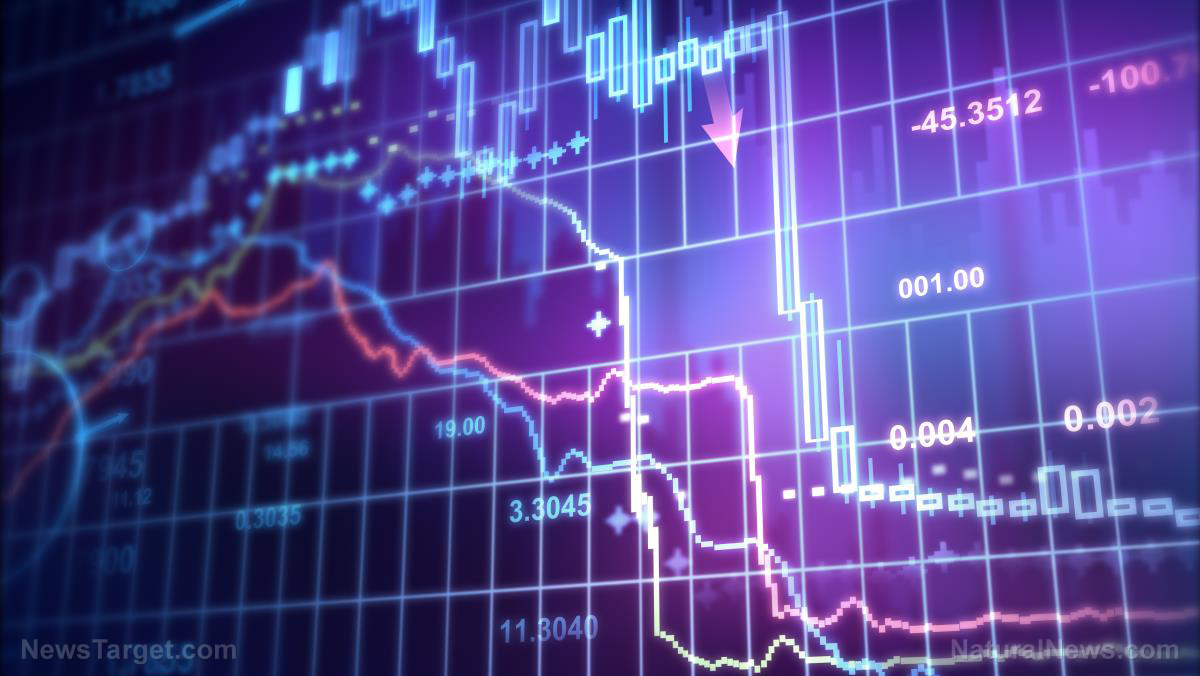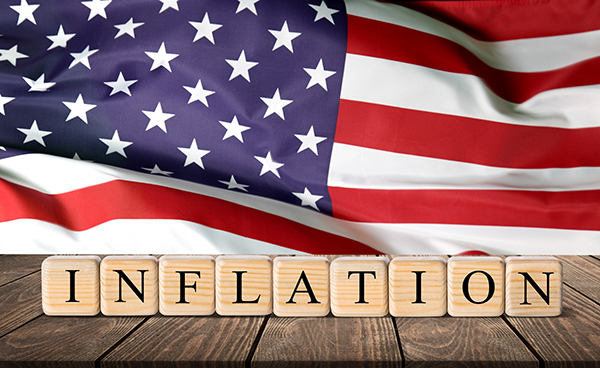America is already hurtling toward a recession, warns economic analyst
06/14/2022 / By Arsenio Toledo

An expert economic analyst believes the U.S. is already in the process of entering a recession.
Peter Atwater, a former hedge fund manager and an adjunct professor at the College of William & Mary in Virginia, predicted in a recent interview with financial services company Wealthion that a large amount of mal-invested capital will be wiped out and parts of the American economy that have historically been resistant to economic crises will be more vulnerable this time around. (Related: Interest rate hikes and Biden refusing to increase oil production will make America’s economic woes EVEN WORSE.)
Atwater’s research indicates that the economy is currently working under the influence of “confidence cycles.” Meaning, the market will enter a recession when consumer sentiment shifts more toward expecting a recession.
“I think the cake has been baked from the sentiment perspective where people are now acting on the assumption that a recession is coming,” said Atwater. “And remember, it’s that action that actually causes a recession to come.”
Americans have many reasons to believe a recession is coming. The country is currently dealing with a “cost of living crisis,” a contraction in the value of the stock markets and persistent predictions from many analysts like Atwater of a coming recession. All of these factors are wreaking havoc on Americans’ confidence in the economy.
According to an April survey by CNBC, more than 80 percent of Americans believe the country will fall into a recession by the end of the year. The University of Michigan‘s Consumer Sentiment Index shows that consumer sentiment dropped by 30 percent year-over-year last month, showing that American confidence in the economy is falling close to levels not seen since the Great Recession.
In a different interview with Fortune, Atwater explained that he is part of a group of economists that believes “how we feel drives what we do.”
“And so sentiment, to me, is an indicator of what we are likely to do ahead, economically,” he explained. This means that, according to Atwater, if consumer sentiment continues to fall, Americans could then rein in their spending, leading to less economic activity and a sort of “self-fulfilling recessionary prophecy.”
Relentless money printing also likely to send American economy into recession
Atwater noted that consumer confidence in the economy alone is not enough to plunge the gargantuan American economy into a financial crisis. Uncontrolled money printing by the Federal Reserve can also tank the economy.
According to Atwater, thousands of companies have fudged their earnings with easy cash due to ultra-low borrowing rates. “With free money, the ability to financially engineer your earnings results is unlimited,” he said.
But now that the Fed is aggressively hiking interest rates, many of these companies will start having trouble rolling over their loans.
“It’s sucking the air out of the room,” said Atwater. He believes thousands of these companies will go bankrupt as a result.
Atwater predicted that most of the companies that will go under in the coming recession are startups and “dream” ventures. Their business models will prove to be unfeasible and the companies will fail. Atwater noted that many investors in the market have been overconfident about these ventures for too long, causing them “to buy promises of even the most ridiculous things.”
“There was so much capital irresponsibly deployed to capture dreams that the volume of equity destruction is going to be massive,” he said.
In the previous recession in 2008, many parts of the economy were spared from the worst effects of the economic crisis. These include government bonds and businesses that serve high-end clientele who were financially stable enough to keep spending despite the crisis, including luxury goods producers. They turned into safe havens for investors and helped the economy recover.
Atwater predicted that these so-called safe havens will also feel the worst effects of the next recession. Even businesses that serve the rich may find that their clientele will be in worse financial shape than they expect.
“What I don’t think investors quite appreciate is we’re having an unwinding in both fixed income and equity simultaneously here. And there’s not going to be any place to hide in that,” he said.
Atwater believes part of this is because the rich may be taking on larger amounts of debt in order to avoid paying taxes.
“It’s a masterful tax strategy, but it is completely devoid of a connection to reality,” he said. “[As a result], nobody has contemplated that the biggest potential losses could be among the customers that have heretofore been the safest.”
Learn more about the destruction of the American economy at Collapse.news.
Watch this episode of “World Alternative Media” as host Josh Sigurdson and guest Tom Picciott discuss how the U.S. is already in a recession.
This video is from the World Alternative Media channel on Brighteon.com.
More related stories:
National average price of gas breaches $5 per gallon mark for the first time in American history.
Nonpartisan Congressional Budget Office predicts SKY-HIGH food inflation to persist until 2023.
Glenn Beck: An economic and financial hurricane is coming and Americans need to prepare for it.
Globalism, central bank money printing are the real root causes behind inflation and shortages.
Sources include:
Submit a correction >>
Tagged Under:
central banks, chaos, Collapse, debt, debt collapse, economic collapse, economic crisis, economics, economy, Federal Reserve, finance, financial crash, inflation, Money Printing, Peter Atwater, recession
This article may contain statements that reflect the opinion of the author
RECENT NEWS & ARTICLES
COPYRIGHT © 2018 MONEYSUPPLY.NEWS
All content posted on this site is protected under Free Speech. MoneySupply.news is not responsible for content written by contributing authors. The information on this site is provided for educational and entertainment purposes only. It is not intended as a substitute for professional advice of any kind. MoneySupply.news assumes no responsibility for the use or misuse of this material. All trademarks, registered trademarks and service marks mentioned on this site are the property of their respective owners.




















